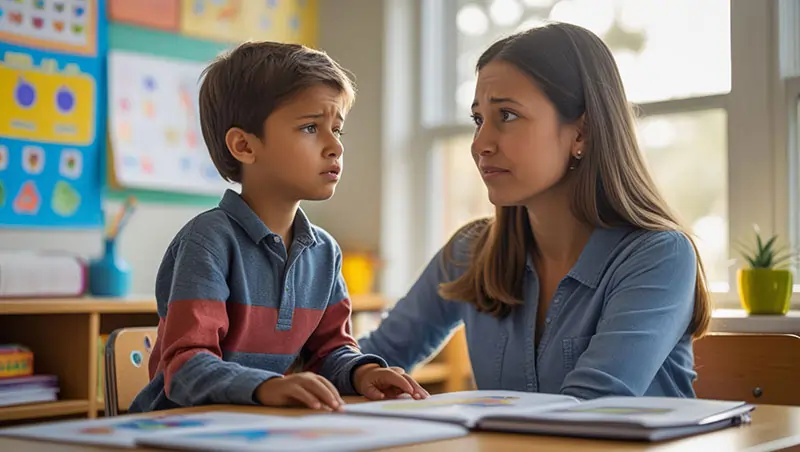The Importance of Early Intervention: Spotting Mental Health Problems in Kids
The mental health of children has grown to be a major issue for parents and teachers both in the fast-paced modern society. One in eight children aged five to nineteen in the UK have a mental health illness, claims the Mental Health Foundation. Preventing future problems depends much on early identification and intervention. Rising consultations in mental health clinics all around the United Kingdom highlight the need of identifying early indicators of mental health issues in children.
Understanding the Importance of Early Detection
Early identification of mental health problems can profoundly influence a child’s general well-being and development. Timeliness of support for children increases their chances of social and academic success. “Early intervention can change the course of a child’s life,” consultant psychiatrist Dr. Bernadka Dubicka notes. Results are better the sooner we can spot problems.
Common Signs of Mental Health Issues
Finding mental health problems in children can be difficult since they usually show differently than in adults. These are some typical indicators to be on lookout:
Underlying problems can be indicated by abrupt changes in behavior including more irritability, distance from friends and family, or declining school performance.
Regular crying, too much worry, or mood swings could all point to anxiety or depression. See how your child shows their emotions.
Complaints of headaches, stomachaches, or other physical illnesses without an obvious medical cause can point to emotional turmoil.
Changes in appetite or sleep patterns can point to mental health problems. A child who suddenly stops eating or finds difficulty sleeping, for example, might be suffering with anxiety or depression.
Your child may be experiencing cognitive overload or emotional stress if they find it difficult to concentrate on activities they once loved.
The Role of Communication
Understanding your child’s mental health demands open communication. Encourage your child to share their emotions and ideas free from concern about criticism. Establishing a safe forum for communication will enable you to spot any concerns early on. “The most important thing in communication is hearing what isn’t said,” child psychologist Dr. Anna Freud once said.
Tips for Effective Communication
Participate actively in listening. Show your child real curiosity about what they are saying. Verify their emotions; do not discount their worries.
Ask open-ended questions instead of yes/no ones to help your child to explain their emotions and experiences.
Children might take time to be open. Let them communicate at their own speed; be patient.
Seeking Professional Help
If you notice persistent signs of mental health issues, it may be beneficial to seek professional help. Mental health clinic London offers various services, including counselling and therapy tailored to children’s needs. According to the National Health Service (NHS), early intervention services can reduce the risk of long-term mental health problems by up to 50%.
When to Seek Help
Persistent Symptoms: If your child shows symptoms for several weeks, you could want to see a specialist.
Impact on Daily Life: Seeking help is absolutely vital if their mental health problems are interfering with their daily life, relationships, or academic performance.
Safety Issues: You must get your child right away if they show ideas of suicide or self-harm.
The Importance of Education and Awareness
Your child’s and your own mental health education is absolutely crucial. Many times, schools and local organizations offer tools and seminars meant to increase knowledge of mental health concerns. Children who grow to understand mental health will be able to identify their emotions and get help when needed.
Resources for Parents
Books and Articles: Child psychology and mental health are covered in great numbers of materials. Learning about these subjects might help parents have the information to spot problems early on.
Joining support groups will enable parents to negotiate their child’s mental health journey by means of insightful analysis and shared experiences.
Websites like Mind and the Mental Health Foundation provide parents worried about their child’s mental health comprehensive tools and information.
Early identification of mental health problems in children helps to open the path for a better, happier future. Parents who are alert and proactive can create a supportive environment that promotes honest communication and, when needed, professional help seeking. Early intervention can transform lives, thus as parents, your contribution in identifying and resolving these problems is quite priceless. See a mental health clinic in London or your local area for advice and support if you believe your child might be suffering. Working together, we can make sure our kids have the mental resilience they need to flourish.


